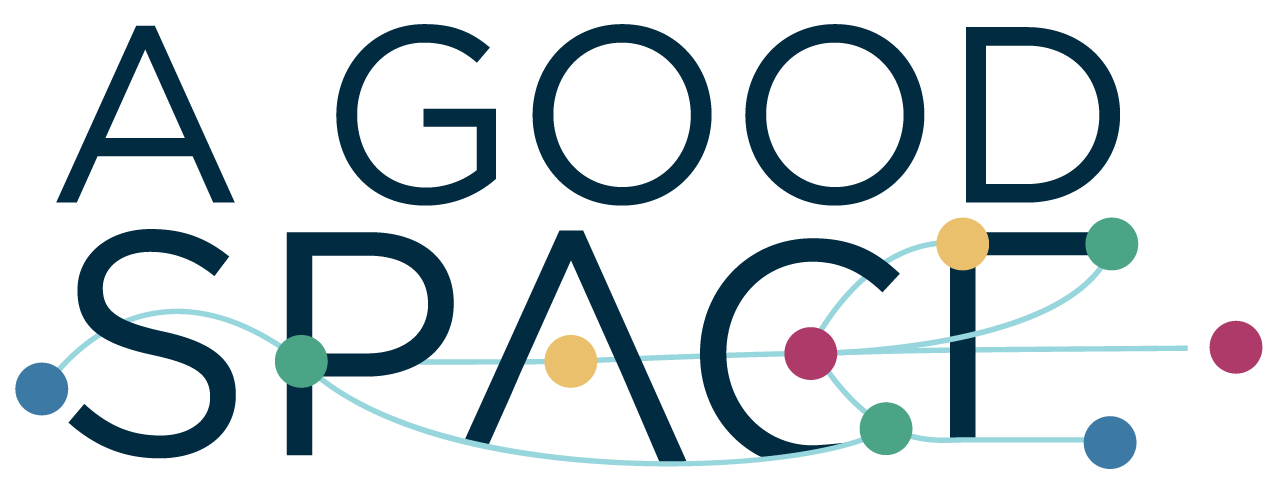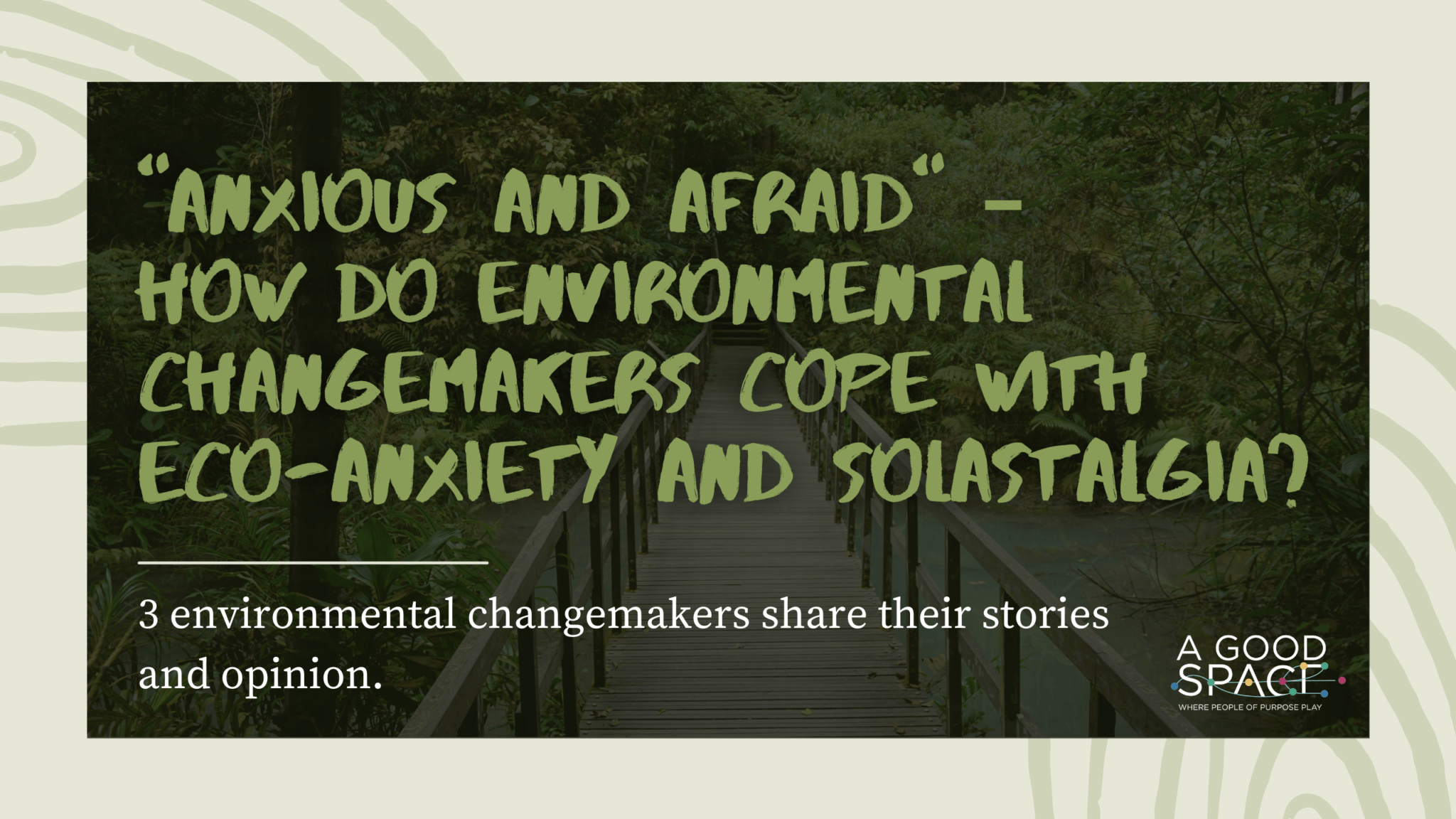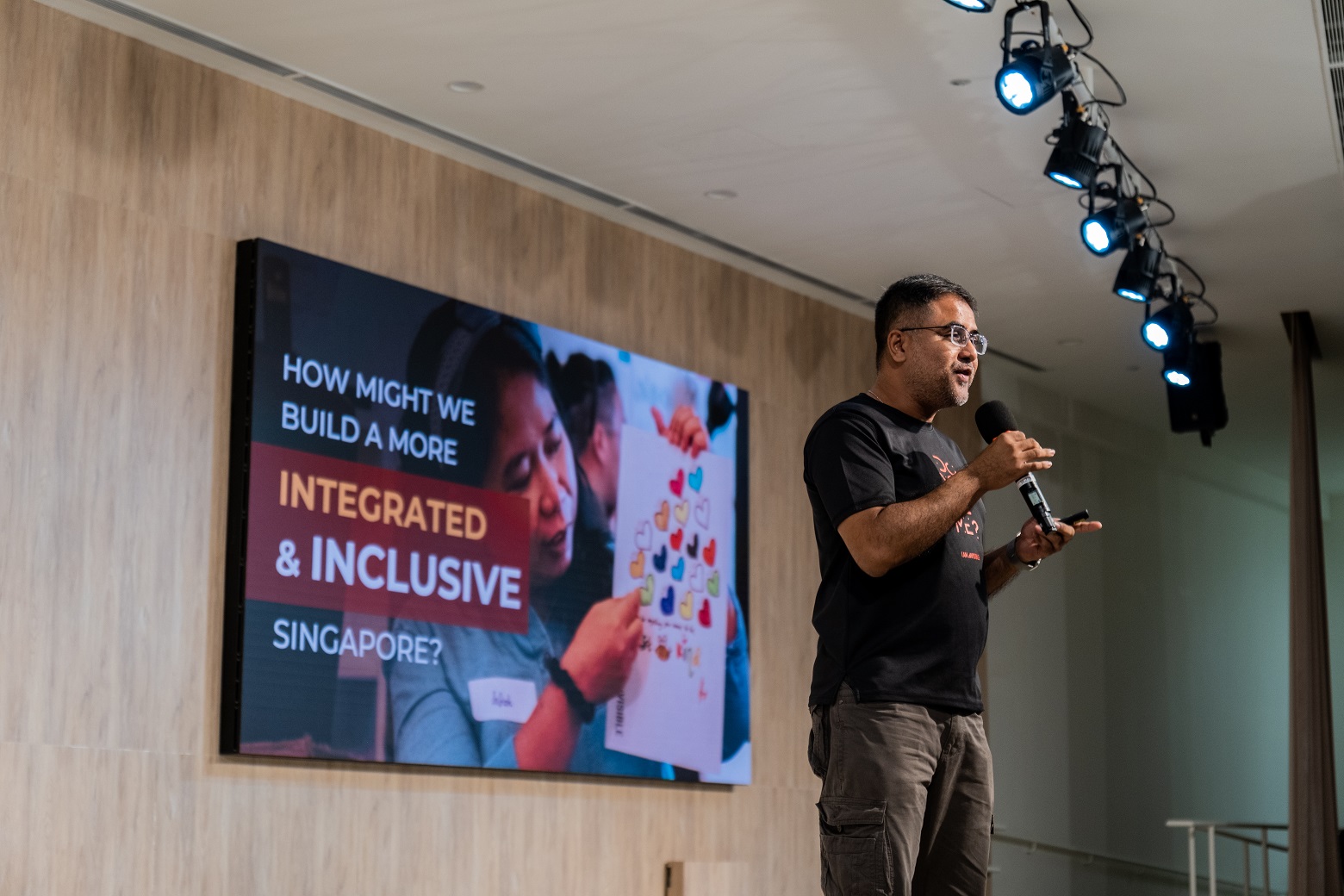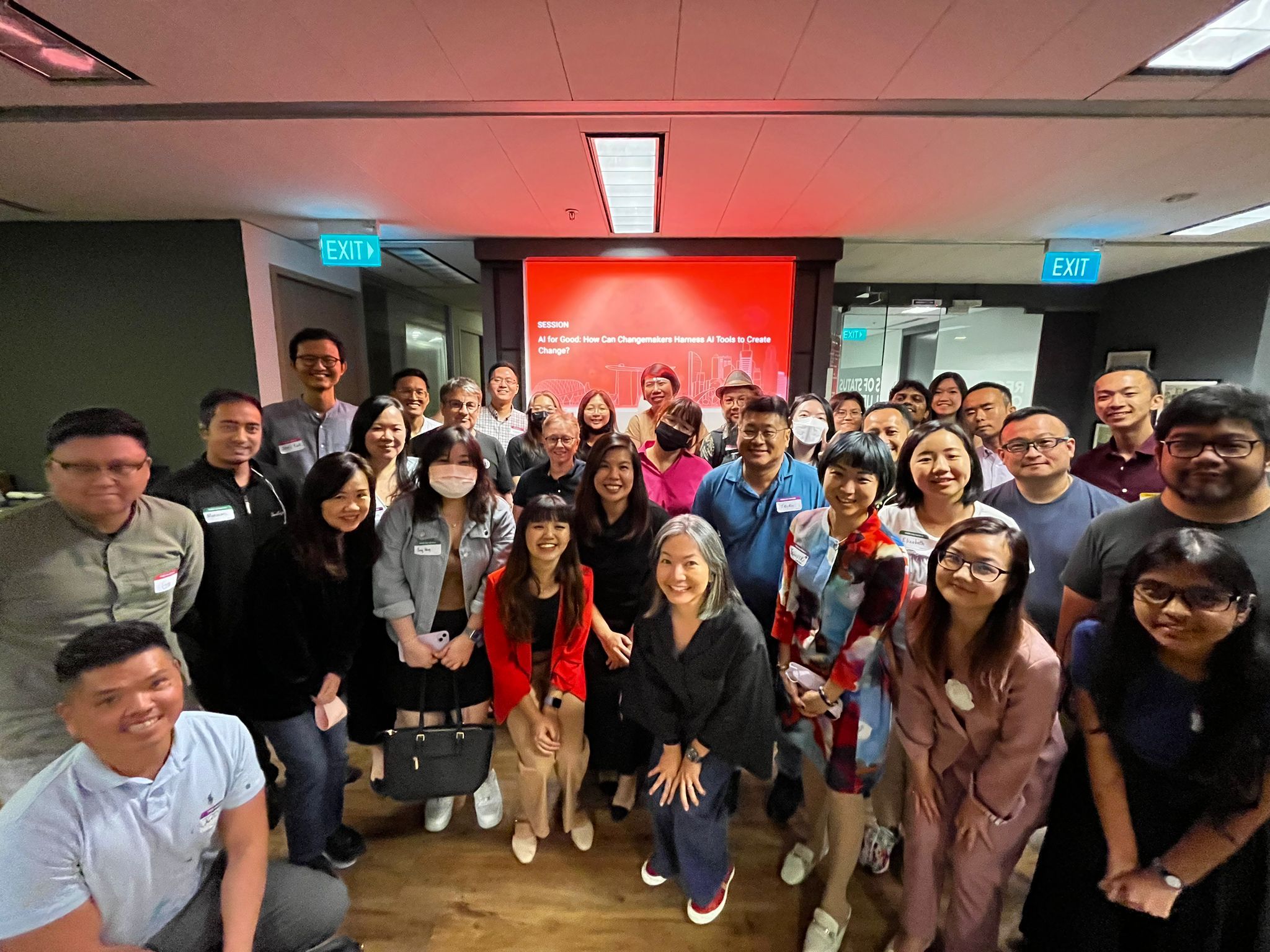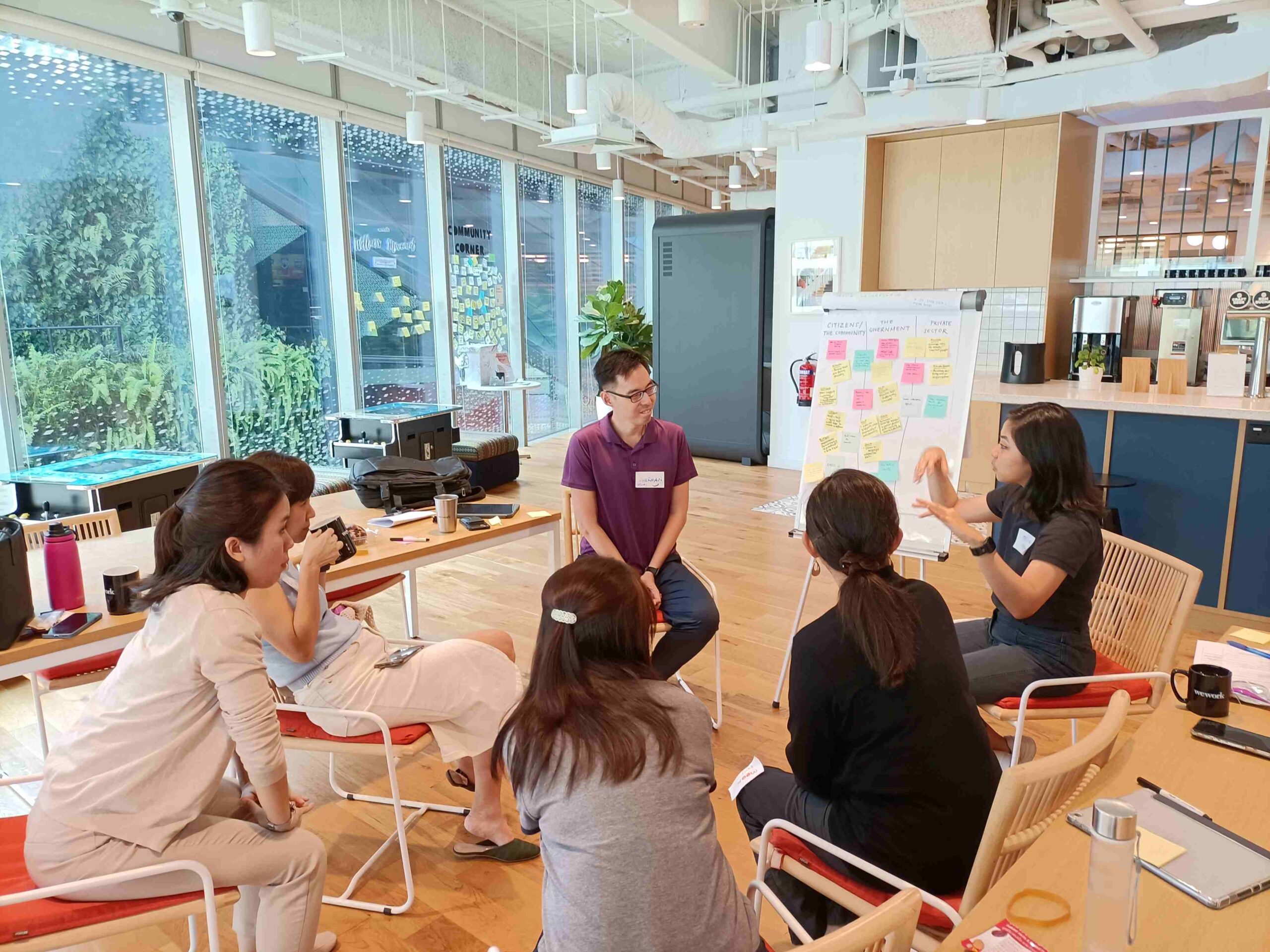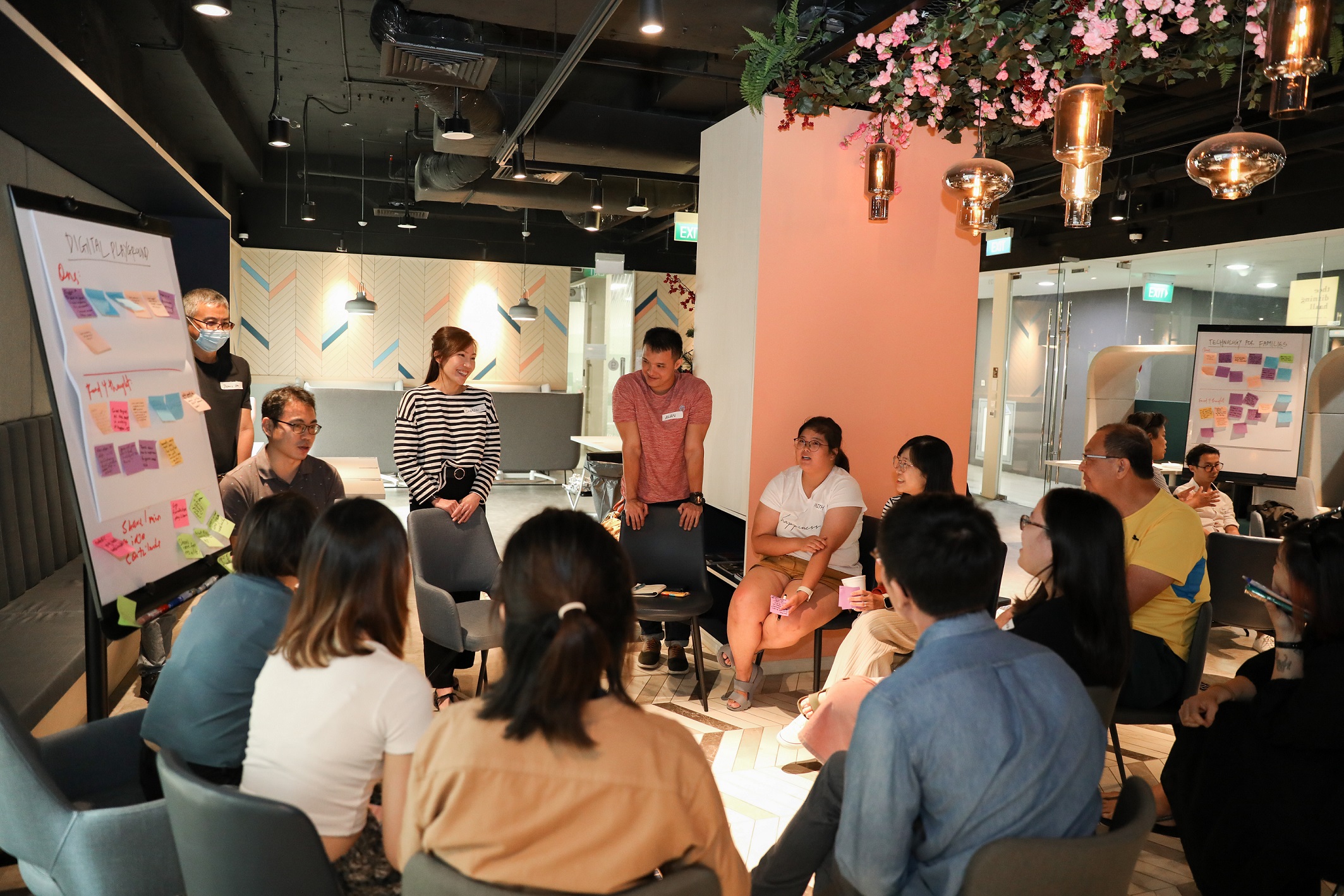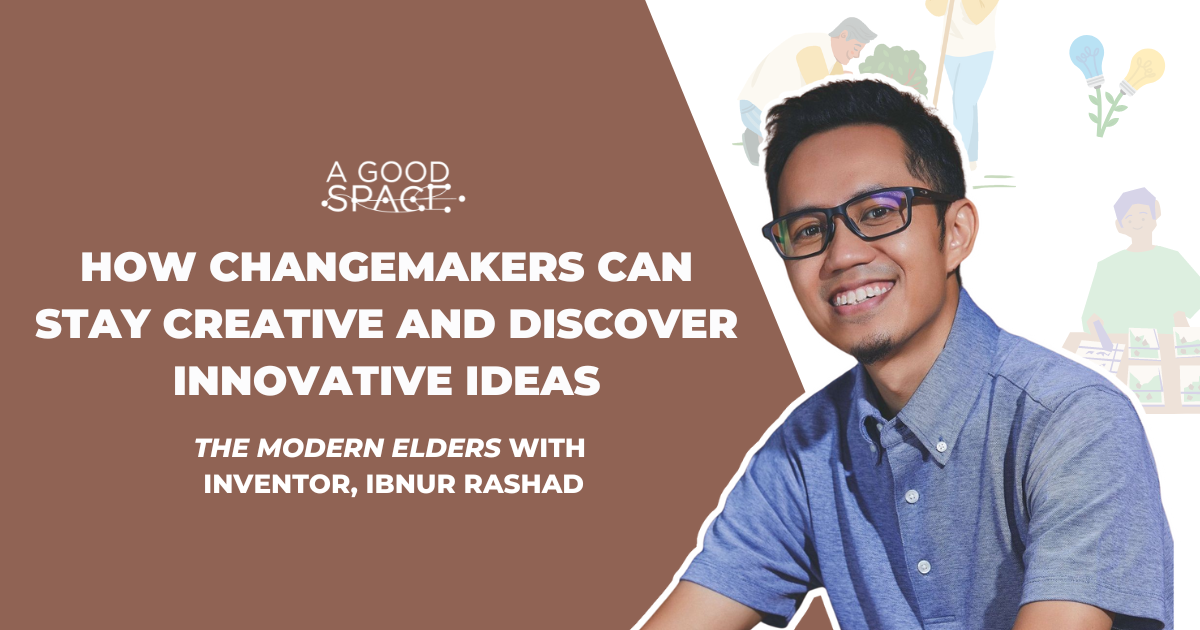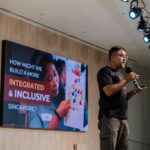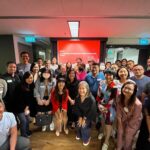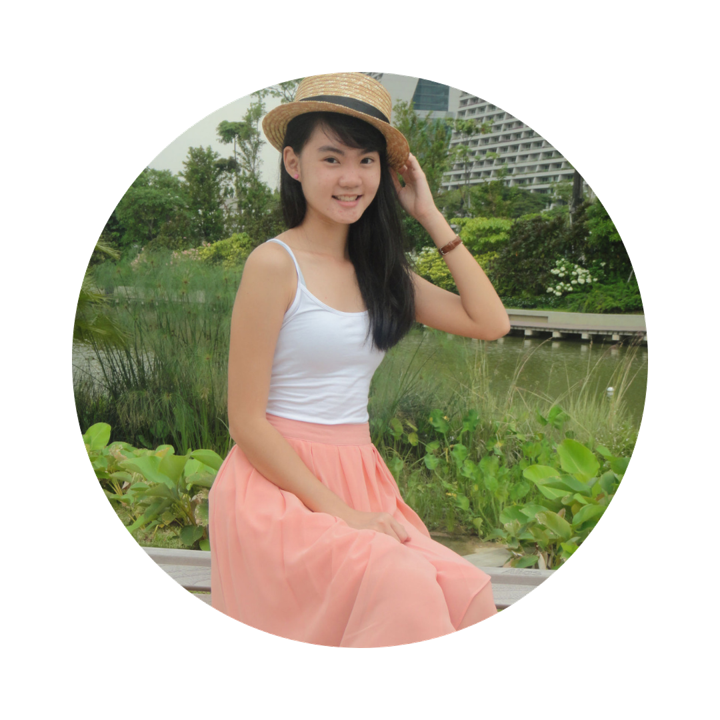“You have stolen my dreams and my childhood with your empty words.” — Greta Thunberg
One might not see the link between mental health and environmental issues. Yet, Thunberg’s impassioned speech at the United Nations Climate Action Summit speaks of a universal anxiety many environmentalists experience, even though not all may experience it as intensely. This anxiety is widely known as eco-anxiety.
This unfamiliar intersection between environmental issues and mental health was first brought to my attention by an old article by A Good Space. It touched on how mental health struggles manifest differently, in different communities like migrant workers, the deaf, transgender people, those living with invisible conditions and environmentalists.
Can anxiety about the environment lead to mental health struggles? This Earth Day, I reached out to changemakers in the environmental space to find out about their personal experiences.
I asked them three main questions:
- What are their personal experiences with eco-anxiety and/or solastalgia?
- What gives them hope about environmental issues?
- How do they respond to people who invalidate their feelings?
Wanting to dive deeper into this issue, I intentionally chose changemakers advocating for environmental issues at different levels of change as I was curious if there was a difference in their experiences.
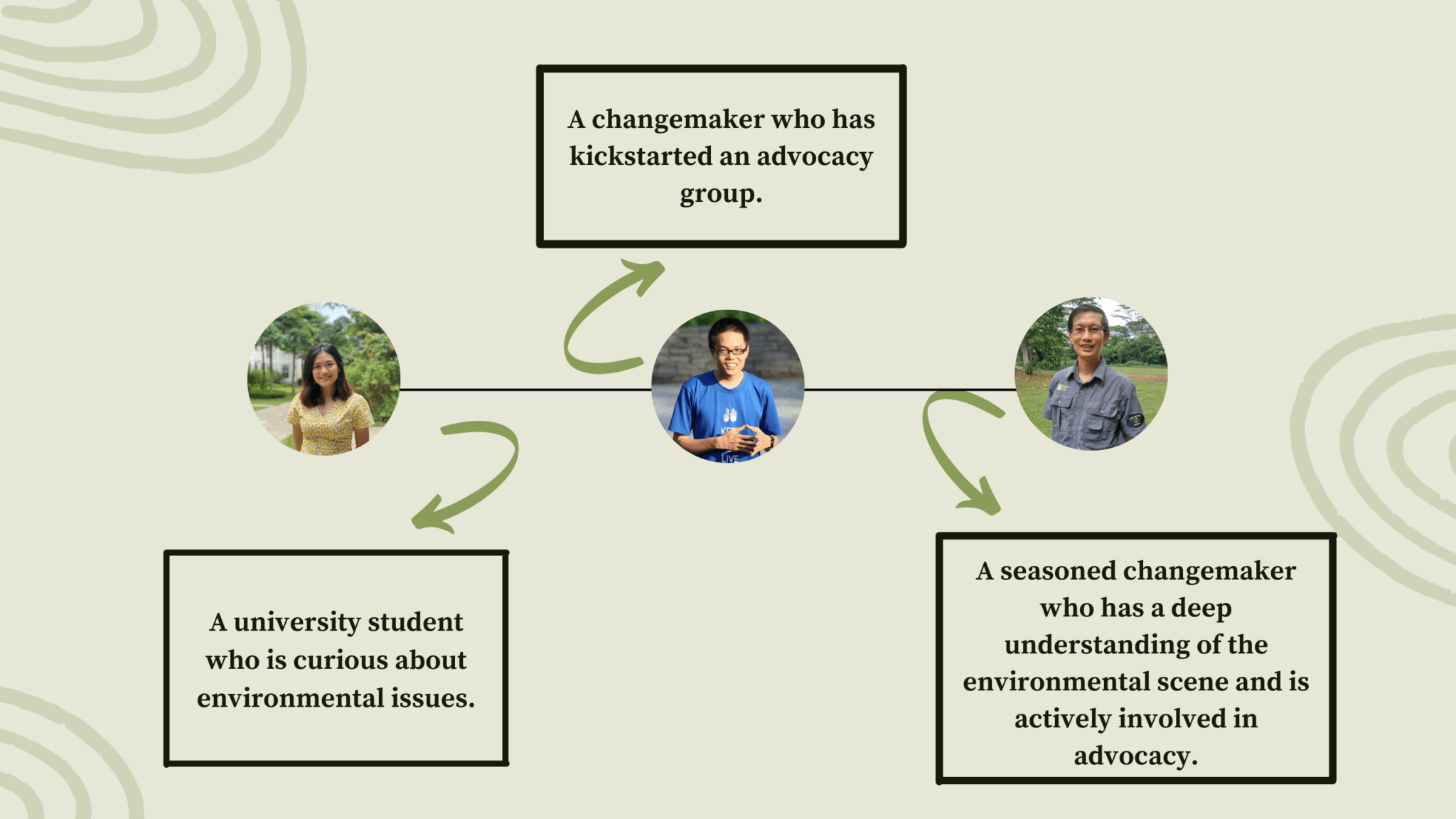
As I talked to them, two terms were brought up — “eco-anxiety” and “solastalgia”, the former meaning a fear of environmental and ecological devastation both in the present and in the future and the latter meaning a deep sense of loss people feel due to environmental damage that has already occurred.
Here are some of the highlights of their responses:
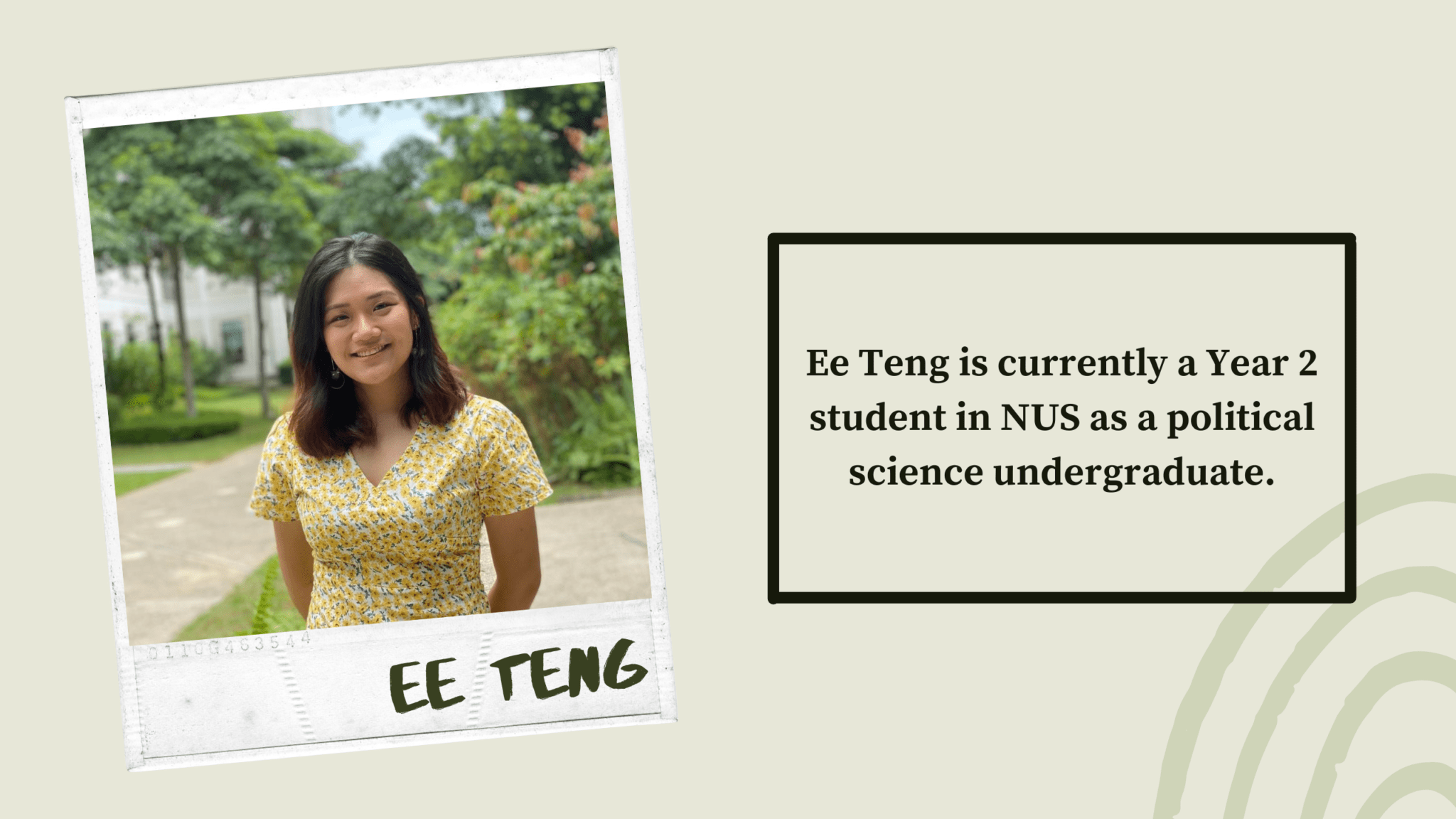
What is Ee Teng’s personal experience with eco-anxiety and/or solastalgia?
She has found herself experiencing eco-anxiety and shared a recent incident when she attended a talk about the Saola, a native deer to Laos and Vietnam. The speakers shared about their efforts to locate the last Saola in the wild to determine if it has gone extinct, since there were no Saolas in captivity.
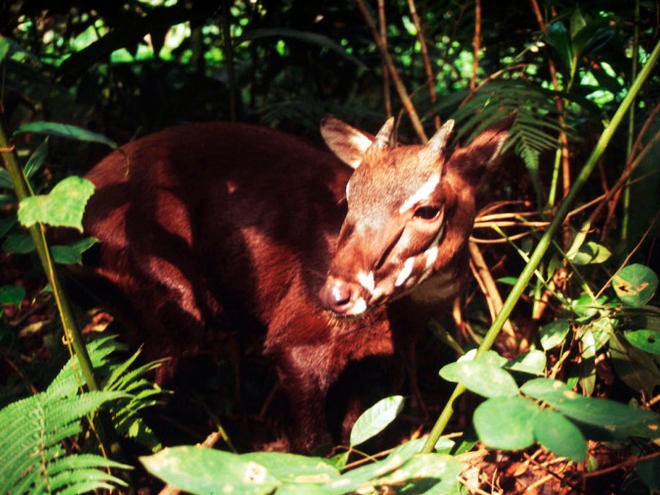
Due to the extensive use of lures and traps in Laos and Vietnam, one can walk 10 steps and find 2 animal traps.
These practices are thought to accelerate the rate of extinction of animals and when animals like the Saola become extinct, there is a significant impact on the ecosystem.
As she listened to the talk, Ee Teng felt a profound sadness and a deep sense of helplessness.
“The only way to help these researchers would be to join the search for the last Saola but I am in Singapore. As a student, I don’t have the ability to donate funds to support the search either,” she expressed.
Watching videos of animals being mistreated or nature being destroyed by humans also triggers Ee Teng’s eco-anxiety.
“These are only the instances that have been recorded but what about the many more that are not accounted for, especially in places where such practices are normalised?” she questioned.
Another concern that causes her to experience eco-anxiety considerably is her fear that some “environmentally-conscious” trends can be abused by individuals or brands that capitalise on these trends for power and profit.
She raised the example of metal straws, which have been widely advertised as an alternative to plastic straws. According to the HSU straw analysis, the carbon emissions from producing one metal straw is 150 times more than that of a plastic straw. Yet, this was a trend several companies capitalised on, in the guise of being environmentally sustainable.
What gives Ee Teng hope about the environmental issues she cares about?
She recalled attending an information session about the Raffles’ Banded Langur, a primate native to Singapore and Malaysia that is critically endangered.
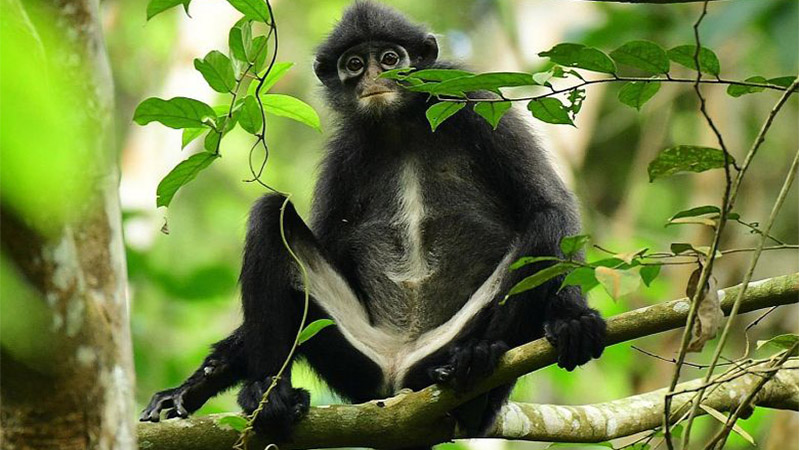
Though she was new to the conservation efforts of the Raffles’ Banded Langur, she found it heartening that there were dedicated individuals who have invested their time and effort in both advocacy and research to conserve the species.
“To know that there are other people who are so dedicated to the conservation of biodiversity really, really means a lot to me. It tells me that I am neither alone nor helpless. In fact, it means I am able to help by supporting them in the work they are already doing.”
How does Ee Teng respond to people who invalidate her feelings?
“They affect us in so many ways we cannot imagine.” Ee Teng shared.
Young students like Ee Teng may feel that it is important to care for our biodiversity, especially before they cease to exist. Hence, the need to do something and often, the inability to act on this need, creates a sense of helplessness that not all can relate to and thus, invalidate.
Ee Teng shares that trying to understand her detractors’ perspectives, instead of freezing them out, can be helpful in turning them from enemies into allies. She adds that the use of jargon like “eco-anxiety” might also turn people off, leading to resistance and the shutting down of constructive criticism.
She believes that targeting the disconnection some may have with Nature will make it easier for people to view environmental concerns and its advocates with empathy.
• • •
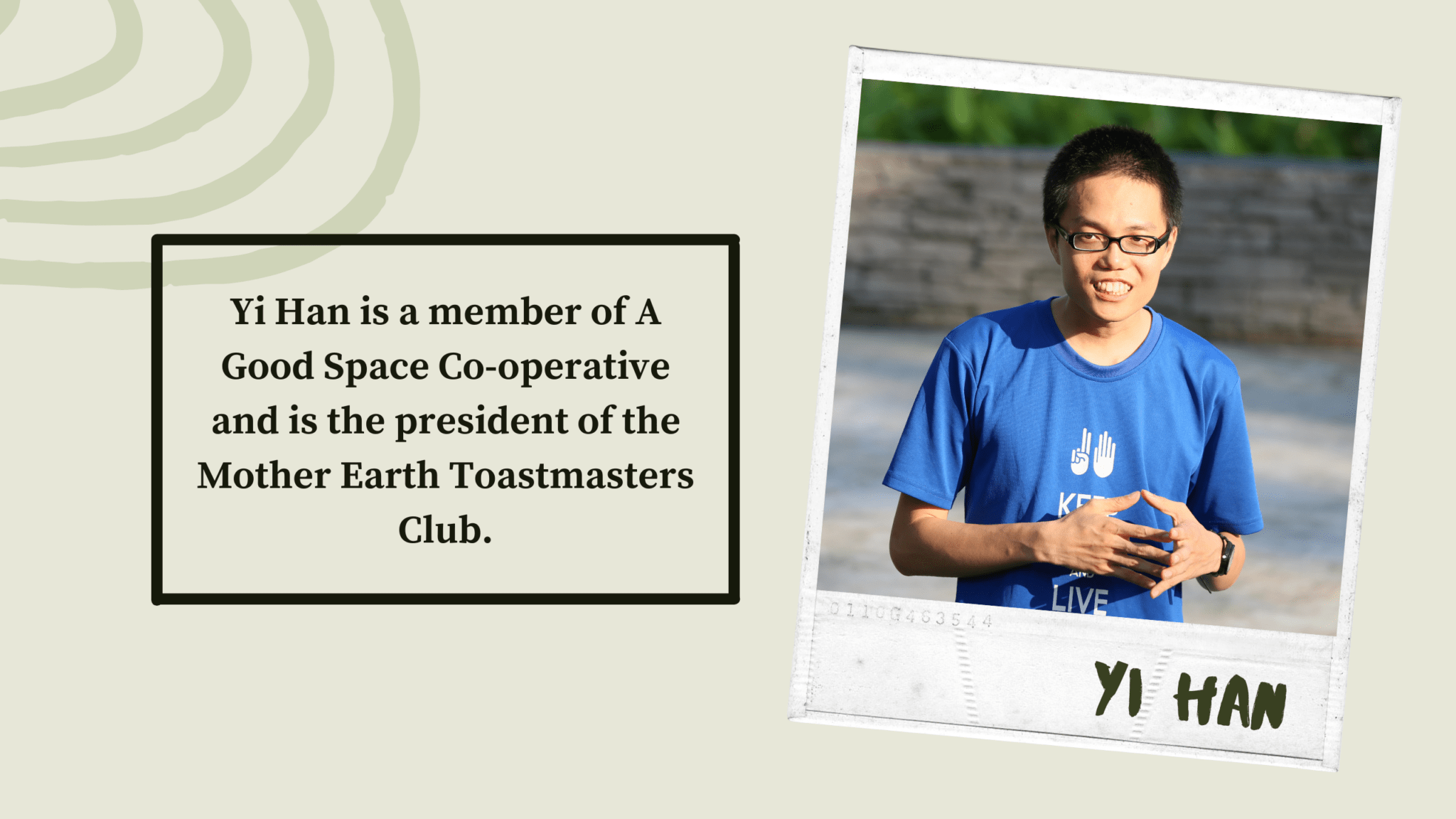
What is Yi Han’s experience with eco-anxiety and/or solastalgia?
Yi Han, from Mother Earth Toastmasters Club, introduced the concept of Earth Emotions to me. Earth emotions refer to a set of emotions people experience due to their connection with nature. An example of these emotions would be solace and nostalgia which are collectively termed as “solastalgia” and are usually experienced as a sense of loss when the natural environment around a person changes drastically.
In trying to explain solastalgia further, Yi Han shared a story from his childhood with me. Growing up, there used to be a large open field outside of his house. One day, a fire had broken out, with plumes of black smoke that engulfed the field. After the firefighters had put out the fire, the once luscious green field had now become a huge black plot of charred grass.
Desperate to bring this open field back, Yi Han and his sister scrambled to spread seeds of the lalang plant from a nearby neighbourhood onto the charred grass. To both their joy, the field transformed into a field full of lalang plants just two weeks later.
In experiencing the healing effect of Nature, Yi Han has felt and still feels a strong connection to it. One day, Yi Han discovered that a huge tree in the same field had been chopped off, leaving only the stump. He vividly remembers placing his hand on the surface of the tree stump, feeling a deep sadness within him.
“When people first encounter solastalgia, they may be apprehensive of this big word but really, I think these feelings of solace and nostalgia are things that many people can relate to, given Singapore’s rapid urbanisations, even if they are not in the environmental space.” he said.
What gives Yi Han hope about the environmental issues he cares for?
Yi Han raises that policies like those under the Singapore Green Plan 2030 evokes happiness for him, especially policies that focus on moving away from a dependence on cars towards more pedestrian-friendly infrastructure, public transport and more greenery.
Realising that regular Singaporeans care about Nature too has been particularly heartening for him. He raises the example of a recent visit he had made to the Dover Forest where he interviewed passers-by and sensed a common love toward the space.
How does Yi Han respond to people who invalidate his feelings?
Yi Han shared that he has learned to pick his battles. While terms like eco-anxiety and solastalgia might sound “fancy”, Yi Han believes that if we are able to label such emotions, it helps people to cope with them better.
He reiterates that while one’s feelings are still valid, channeling them towards developing one’s own expertise and networks so that one’s voice can become more prominent seems to be more productive.
“As changemakers, we may care about many issues. Recognising that we are only human with limited time and energy can help prevent us from being self-critical and burning out.
When I was young, I got very upset whenever trees in my neighbourhood got chopped down. But after one of my seniors in the environmental movement advised me to ‘pick my battles’, I learnt to let go and focus my attention on issues where I could make the most difference like saving Dover Forest. For other issues, I might just sign a petition or shoot off an email, but no more. I guess that helped me to keep my sanity.” he shared.
Yi Han hopes that changemakers trust that the work they do matters. He brings up the example of the women’s suffrage movement in USA. It took 80 years for women to win the right to vote. By then, early pioneers of the movement like Elizabeth Cady Stanton had died but the efforts of such pioneers have benefitted the generations to come.
“Even if the impact of your work seems too small or too slow, it creates a foundation for future generations to build on.”
"Nothing that is worth doing can be achieved in our lifetime; therefore we must be saved by hope." – Reinhold Niebhur, American Theolgian.
• • •
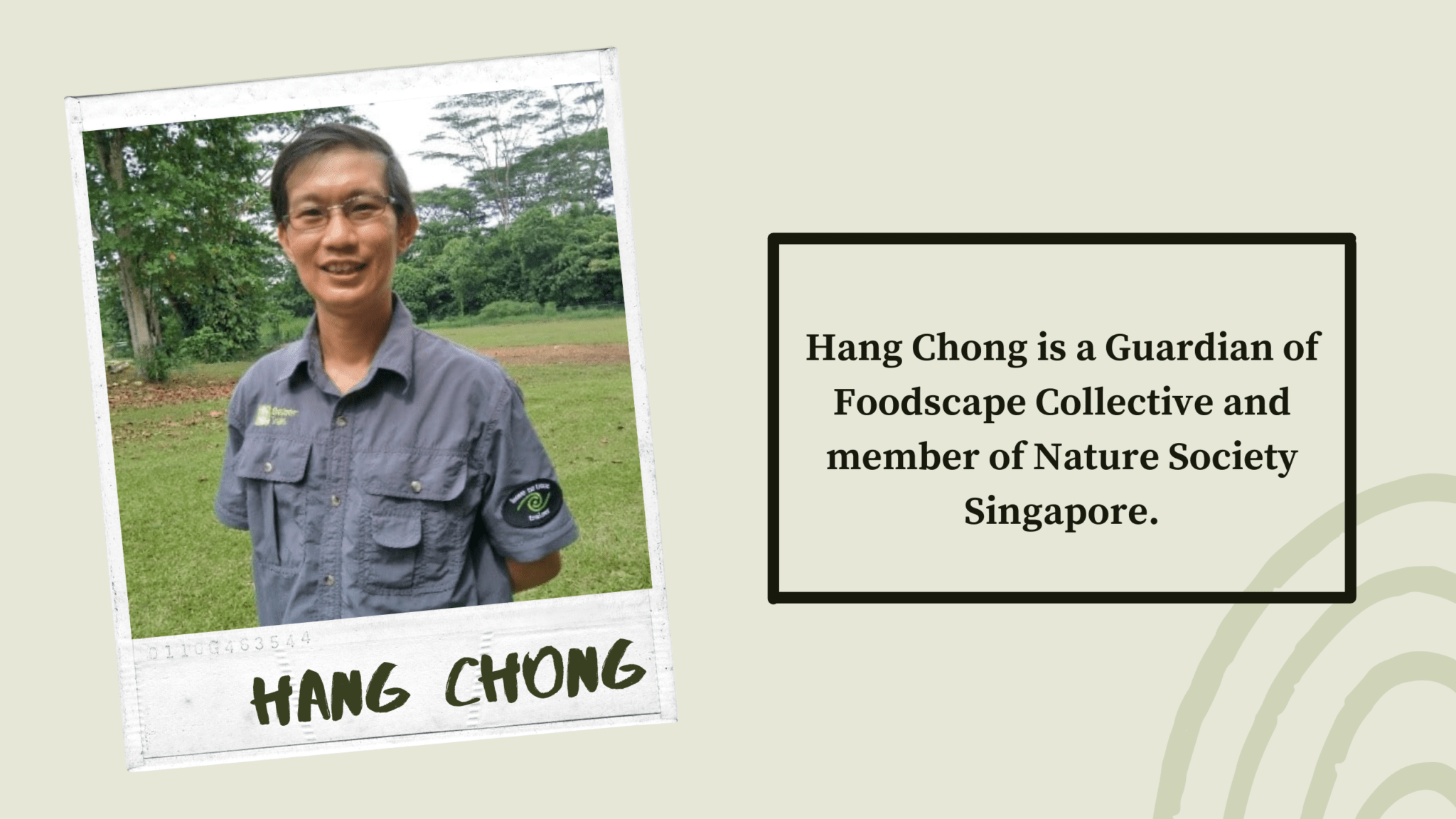
What is Hang Chong’s experience with eco-anxiety and/or solastalgia?
Having been active in advocating for environmental issues for over 30 years, Hang Chong shared with me that he has experienced both eco-anxiety and solastalgia but feels that he is able to manage his emotions.
He experienced a deep sense of loss as a member of the Nature Society Singapore (NSS) when he participated in their signature campaign that objected to housing developments in Sembawang that would replace the Senoko Wetlands, then a habitat for numerous species of birds, back in the early 1990s. Despite NSS collecting over 25,000 signatures, the authorities decided to go ahead with the development plans.
His experience with eco-anxiety comes mainly from his thoughts about the number of species the world loses to extinction on a daily basis.
“The scale and urgency of the challenges faced by environmental advocates fighting back against environmental degradation and habitat destruction are great,” he shared. “I am concerned that we may one day go past the tipping point — the point of no return.”
He raises the example of leatherback turtles in Terengganu, which regularly beach up to lay eggs.
The poaching of leatherback turtle eggs was common, possibly because the abundance of eggs on the beaches seemed to indicate that the poaching had little to no impact on the turtle population.
However, decades later, a “tipping point” had been reached when the number of eggs laid on these beaches declined drastically. The survival rate of these turtles from birth to adulthood is extremely low.
Hence, the poaching greatly reduced the population of turtles which could have returned as adults to lay eggs on the beach, so much so that the current conservation efforts are hugely impeded.
What gives Hang Chong hope about the environmental issues he cares about?
The increased vibrancy of the environmental space in Singapore has given him hope. Hang Chong’s advocacy started back in 1991 when the concerns of the day were about ozone depletion, pollution and excessive consumerism.
Then, NSS was the only civil society organisation involved in nature conservation. As a student in Catholic Junior College in 1990, he was only able to reach out to two other green groups in the school scene.
In the span of 30 years, he has noticed an explosion of green clubs and initiatives. There are more changemakers he can reach out too and in general, environmental consciousness has increased greatly.
He also noted big international organisations like the Worldwide Fund for Nature, Conservation International, Birdlife International, etc started coming to Singapore to establish their regional headquarters.
How does Hang Chong respond to people who invalidate his feelings?
In his advocacy journey, Hang Chong has encountered climate skeptics, one of which even went to the extent of organising meetings to debunk global heating.
While some may dismiss such people entirely and shun them out of conversations, Hang Chong believes that if possible, environmental changemakers should try to converse with them.
“The conversations should not have the intention of changing their opinions but rather, focus on understanding why they hold such views. Engaging in arguments with such people is not always productive, especially on social media where the anonymity of the Internet often leads to emotive, rather than rational conversations,” he said.
Calling himself a cautious optimist, he believes it is more important to focus on the positive than the negatives, even when people invalidate your concerns.
In advising environmental changemakers, Hang Chong says: “Try not to take differing views personally. People may have differing views because of their personal experiences. Trying to find consensus on what should be and what can be done is key.
• • •
As I listened to the changemakers’ stories, I found that experiences with solastalgia and eco-anxiety may be relatable to some, even if they are not in the environmental space.
I also found that changemakers at different levels of change have different coping mechanisms – some find comfort in communities while some find comfort in focusing on the positives.
Have you experienced eco-anxiety or solastagia before?
Share your stories with us by leaving a comment below! For more content like this, subscribe to our mailing list at agoodspace.org/blog/

See Tow Jo Ann
Jo Ann is a content marketing intern at A Good Space. She loves a good day at home with Netflix, or even better, mahjong.
